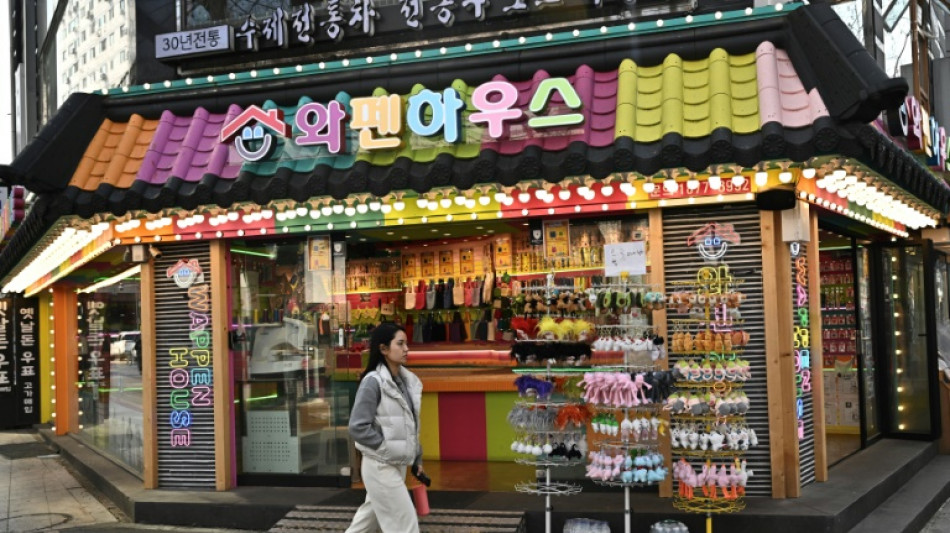
-
 Lyle Menendez denied parole decades after murder of parents
Lyle Menendez denied parole decades after murder of parents
-
US halts work on huge, nearly complete offshore wind farm
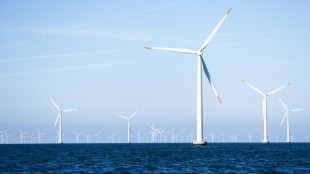
-
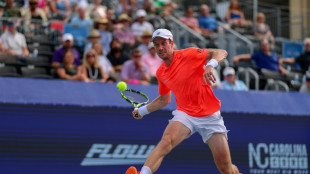 Van de Zandschulp to face Fucsovics in ATP Winston-Salem final
Van de Zandschulp to face Fucsovics in ATP Winston-Salem final
-
Firefighting games spark at Gamescom 2025

-
 'KPop Demon Hunters' craze hits theaters after topping Netflix, music charts
'KPop Demon Hunters' craze hits theaters after topping Netflix, music charts
-
Zverev 'on right path' after mental health reset

-
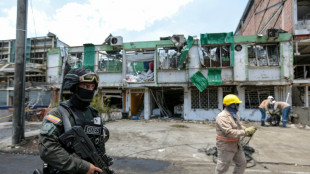 Colombia vows to neutralize guerrilla threat as twin attacks kill 19
Colombia vows to neutralize guerrilla threat as twin attacks kill 19
-
Akie Iwai stretches lead to three strokes at Canadian Women's Open

-
 Five killed in New York state tourist bus crash
Five killed in New York state tourist bus crash
-
Secretariat's Triple Crown jockey Ron Turcotte dies at 84

-
 Trump, Intel announce deal giving US a 10% stake in chipmaker
Trump, Intel announce deal giving US a 10% stake in chipmaker
-
Djokovic narrows focus in pursuit of 25th Grand Slam

-
 England 'just getting started' after Women's Rugby World Cup rout of USA warns Mitchell
England 'just getting started' after Women's Rugby World Cup rout of USA warns Mitchell
-
Trump names close political aide as ambassador to India
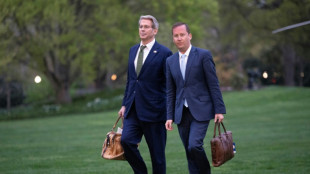
-
 Kane hits hat trick as Bayern make 'statement' in Bundesliga opener
Kane hits hat trick as Bayern make 'statement' in Bundesliga opener
-
Fraser-Pryce aiming to end career in 'magnificent way' at Tokyo worlds

-
 Multiple tourists killed in New York state bus crash
Multiple tourists killed in New York state bus crash
-
Gauff looks to future with bold coaching change before US Open

-
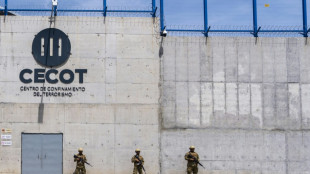 Salvadoran man at center of Trump deportations row freed
Salvadoran man at center of Trump deportations row freed
-
Dutch foreign minister resigns over Israel sanctions showdown

-
 Top-ranked Sabalenka seeks rare US Open repeat
Top-ranked Sabalenka seeks rare US Open repeat
-
Chelsea thrash West Ham to pile pressure on former boss Potter

-
 Kane toasts 'instant connection' with Diaz after Bayern romp
Kane toasts 'instant connection' with Diaz after Bayern romp
-
Ruiz goal gives rusty PSG narrow win over Angers in Ligue 1

-
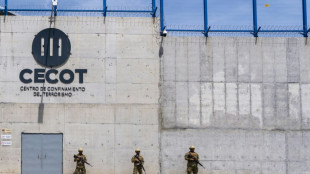 Salvador man at center of Trump deportations row freed
Salvador man at center of Trump deportations row freed
-
Kane hits hat trick as Bayern thump Leipzig in Bundesliga opener

-
 England begin bid for Women's Rugby World Cup by thrashing United States
England begin bid for Women's Rugby World Cup by thrashing United States
-
Hopes dim for Putin-Zelensky peace summit
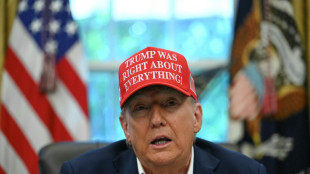
-
 Sinner in race for fitness with US Open title defense looms
Sinner in race for fitness with US Open title defense looms
-
Jefferson-Wooden cements Tokyo sprint favourite status with Brussels win

-
 Dutch foreign minister resigns over Israel sanctions
Dutch foreign minister resigns over Israel sanctions
-
Colombia reels after twin guerrilla attacks kill 19
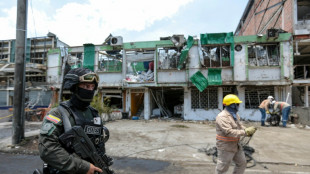
-
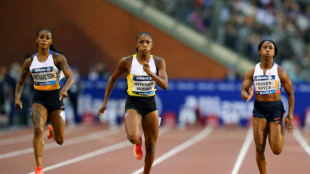 'Zero doubts' as Jefferson-Wooden scorches to Brussels 100m win
'Zero doubts' as Jefferson-Wooden scorches to Brussels 100m win
-
Fleetwood ties Henley for PGA Tour Championship lead

-
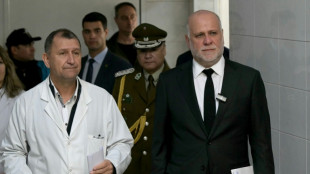 Detained Chileans freed two days after football brawl in Argentina
Detained Chileans freed two days after football brawl in Argentina
-
Jefferson-Wooden scorches to Brussels Diamond League 100m win
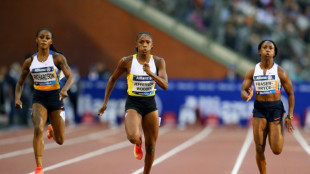
-
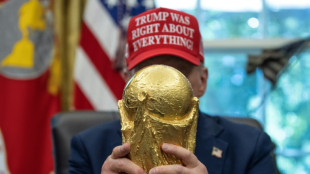 Trump says 2026 World Cup draw set for December in Washington
Trump says 2026 World Cup draw set for December in Washington
-
Canada removing tariffs on US goods compliant with free trade deal
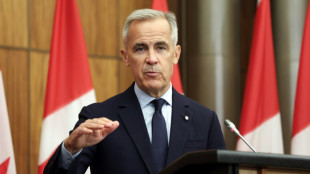
-
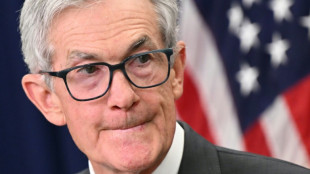 US Fed chair opens door to rate cut as Trump steps up pressure
US Fed chair opens door to rate cut as Trump steps up pressure
-
Boko Haram denies Nigerien army claim to have killed leader

-
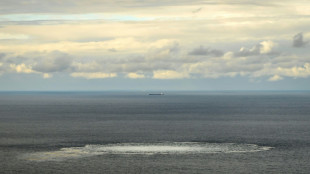 Ukrainian refuses German extradition in Nord Stream sabotage case
Ukrainian refuses German extradition in Nord Stream sabotage case
-
Wall Street rallies, dollar drops as Fed chief fuels rate cut hopes
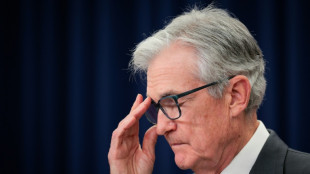
-
 Spurs boss Frank only wants committed signings after Eze snub
Spurs boss Frank only wants committed signings after Eze snub
-
German, French post offices restrict packages to US over tariffs
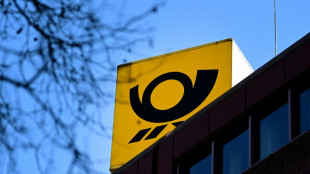
-
 Australian sprinter Asfoora rebounds to land Nunthorpe Stakes
Australian sprinter Asfoora rebounds to land Nunthorpe Stakes
-
Embattled Bordeaux winemakers see Trump's tariffs as latest blow

-
 Russia rejects Zelensky meeting as diplomatic tension simmers
Russia rejects Zelensky meeting as diplomatic tension simmers
-
UN declares famine in Gaza, Israel rejects 'lie'

-
 FBI raids home of outspoken Trump critic John Bolton
FBI raids home of outspoken Trump critic John Bolton
-
Nuno 'worried' for job over relationship with Forest owner


S. Korea's economy shrinks in first quarter as trade war hits exports
South Korea's economy unexpectedly contracted 0.1 percent in the first three months of this year, the country's central bank said Thursday, as the Asian export giant reels from months of political chaos and heightened trade tensions.
US President Donald Trump's threatened 25 percent "reciprocal" tariffs on export-dependent South Korea have rattled Asia's fourth-largest economy, sending Seoul-listed shares tumbling and pushing the currency to its weakest level since 2009.
The country is also still emerging from a political crisis triggered by former president Yoon Suk Yeol's December attempt to suspend civilian rule, which culminated in his impeachment and removal from office this month.
"Real gross domestic product (GDP) fell by 0.1 percent compared to the same period last year," the central bank said, adding that it contracted by 0.2 percent from the previous quarter.
"Two developments hit confidence and the economy -- fallout from former President Yoon Suk Yeol's failed martial law attempt and worries about shifts in US trade policies," said Hyosung Kwon, an economist at Bloomberg Economics.
"Looking ahead, we see the economy rebounding in the second quarter of this year, helped by easing political uncertainty at home. But the recovery will likely remain fragile as elevated US tariffs weigh on external demand," Kwon added.
- Dented exports -
The country's economy expanded 1.3 precent in the first quarter of last year but grew less than expected in the fourth quarter, as the fallout from Yoon's declaration of martial law hit consumer confidence and domestic demand.
According to the Korea Customs Service, as of mid-April, the country's exports had dropped by more than 5 percent compared to the previous year, with declines reported in nine out of the country's ten major export categories excluding semiconductors.
The sharpest fall was in exports to the United States, which plunged by more than 14 percent.
The International Monetary Fund this week sharply revised down its growth forecast for South Korea for the year, cutting it from 2.0 percent to 1.0 percent.
"The South Korean economy is facing structural burdens of high inflation and a weak won-dollar exchange rate, and under this dual pressure, a slowdown in growth is becoming increasingly evident," Kim Dae-jong, a professor at Sejong University, told AFP.
Bank of Korea governor Rhee Chang-yong said last week the country's annual growth rate is now "expected to fall short of the 1.5 percent forecast made in February".
"The tightening of tariff policies, which is much stronger than initially projected, will likely further weigh on growth prospects," he told reporters in a press conference.
He added that "political uncertainty has dragged on longer than expected, delaying the recovery of economic sentiment."
Sluggish domestic demand, along with factors such as large-scale wildfires which tore through swaths of the country's southeast in late March, had also contributed to the downturn, Rhee said.
Addressing parliament, acting president Han Duck-soo underlined "significant" challenges by South Korea.
"Unprecedented US-driven tariff policies have created a level of uncertainty that is causing rapid and unpredictable shifts in the global economic landscape," Han told the National Assembly.
US tariffs on steel and automobiles, as well as broader levies imposed by Trump on other goods, are expected to "place considerable strain on Korean industries and businesses," added Han.
F.Schneider--AMWN